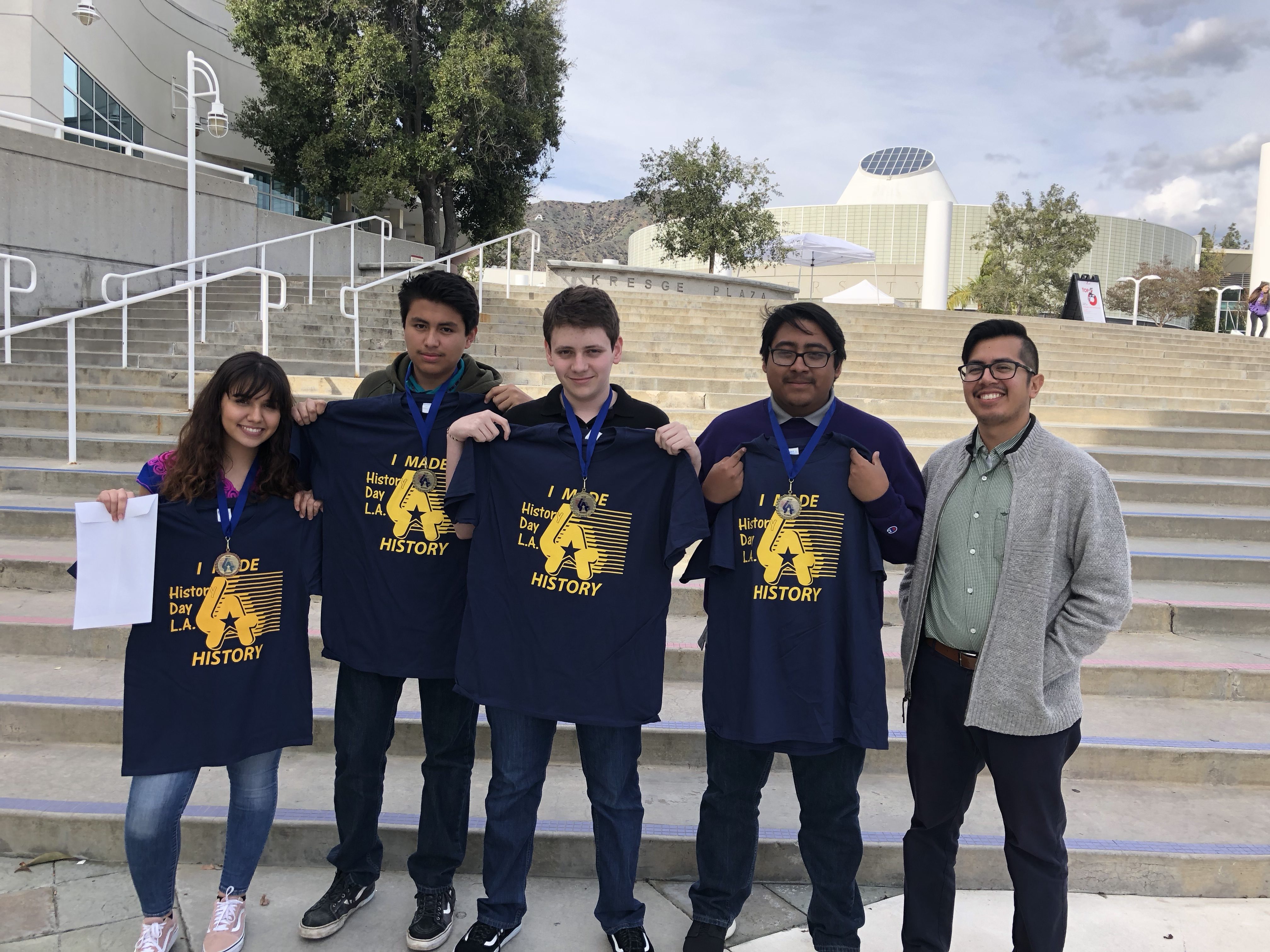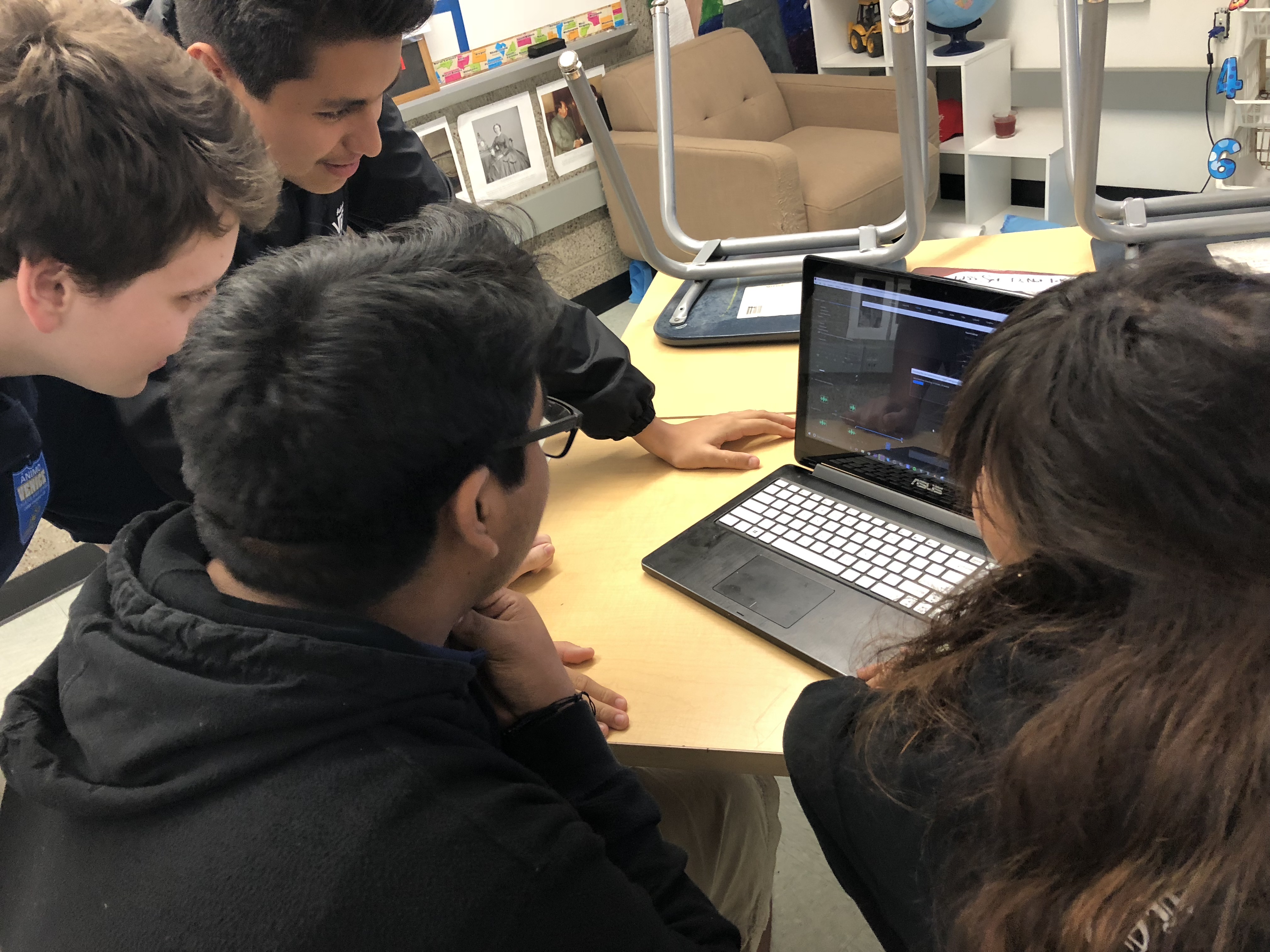Ánimo Venice Students Create a Documentary Exploring Sexuality, Gender, and Race in Mesoamerica

“This is the first time any of us have had our work take us outside of our community, especially to a different state!” said Jonathan Lopez, senior at Ánimo Venice Charter High School. With the support of their history teacher Omar Ramirez, Mariah Bonilla, Jason Clemens, Abraham Hernandez-Mazon, and Jonathan Lopez created a documentary for the Los Angeles County History Day Competition. Their film, which focused on the history of sexuality, gender, and race in Mesoamerica (pre-colonized Mexico and Central America) and post-colonized Latin America won them a spot in the state finals in Sacramento.
“Our History”
“We noticed our parents could be intolerant about certain ideas around sexuality and gender roles,” said Lopez. The group’s experiences with their families’ biases inspired them to research their own indigenous family history. For many of them, this was exciting, as it was information their families never spoke about.

Once they traced their own lineages, they began researching the roles of sexuality, gender, and race in the cultures of the indigenous people in the countries their families originated from. Ramirez didn’t spoon feed his students, but rather empowered them to take ownership of their pursuit of knowledge, knowing this project would support their growth as students. “The research proved to be difficult to find, the school books we had typically only covered Christopher Columbus and Spanish colonization,” said Clemens. “So we read countless books on gender fluidity within different cultures and studied the work of professors who spent years researching and writing on the topic.”
For example, the students spoke with Dr. Peter Siga, a history professor at Duke University whose books on the topic of sexuality have been recognized by the American Society for Ethnohistory. The students also spoke with Chrystos Smith, writer and activist of the Menominee Tribe of Wisconsin. “These students’ desire to answer their own questions motivated them to research very complex and esoteric topics that many students in high school and college never even explore,” said Ramirez.
Lopez believes that “the idea of gender in Latin culture was drastically different than what it is today. In Mesoamerica, gender was divided by the warrior and non-warrior class, and there was an additional group of men and women who dressed and observed the norms of the opposite gender,” said Lopez. “What was interesting was that these individuals were highly respected in their communities for the unique role they played in society; however, in our society, many of our families would not have the same view if we were transgender or anything other than heterosexual.” Colonization in the 16th century suppressed many aspects of pre-colonized Mesoamerica, especially gender and religious practices. For Bonilla the things she’s learned from this project have proven to be insightful: “It was refreshing to see for myself where our current ideas on gender, race, and sexuality came from and the historicity of it due to colonization.”
Heading to Finals
The group fundraised for a trip to Sacramento where they competed in the History Day Competition finals. There were over 60 documentaries from around the state and judges chose 16 to qualify as finalist for final judging. Though they didn’t make it to nationals, the group was proud to have their work recognized. They hope their documentary will channel a conversation and inspire other students on their life journey as they navigate sexuality, gender, and race in their own lives. At Green Dot, educators like Ramirez challenge our students while also scaffolding support to nurture their intellectual curiosity. “From what they’ve learned through this project, [this group of students has] grown as stewards for their own communities, because as leaders they’ve encouraged tolerance within their families and communities.”
